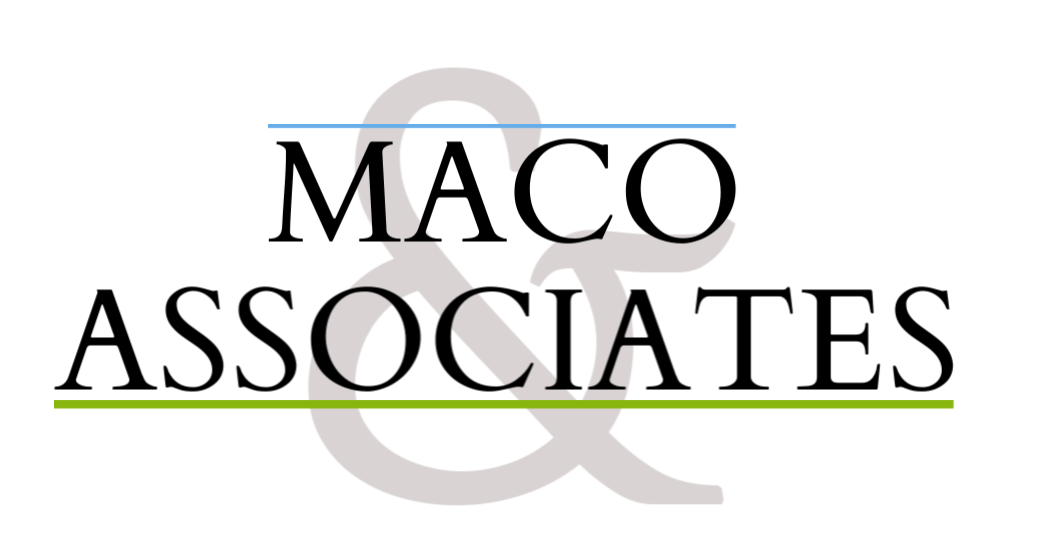Check W-4 withholdings
With so many changes recently, it’s a good idea to check how much federal income tax you’re having
withheld from each paycheck. Too little can lead to a tax bill. Too much means smaller paychecks and
a larger refund, but you can’t use the money until you file and receive your refund.

Check your withholding if you have any:
• Lifestyle changes such as marriage, divorce, birth of a child or retirement
• Change in wages because you or your spouse started or stopped working
• Taxable income not subject to withholding such as self-employment income, IRA distributions or capital gains
• Tax credits such as the child tax credit, earned income credit (EIC), dependent care credit or an education credit
Be sure to notify me, your tax preparer, of any of these changes. Together, we can perform a “paycheck checkup” to ensure you have the right amount of tax withheld from your paycheck.
Amended returns
Certain retroactive tax law changes occurred after the 2021 tax season began. If you filed your 2020
tax return before the American Rescue Plan (ARP) was enacted on March 11, 2021, some changes will
be adjusted automatically by the IRS while others require an amended tax return. The IRS is making the following corrections automatically and issuing the resulting refunds, so an amended return should not be filed.
• Excluding $10,200 of 2020 unemployment compensation from income if your modified adjusted gross income (MAGI) is less than $150,000
•Refunding the excess advance premium tax credit repaid with your 2020 return
• Adjusting the 2020 recovery rebate credit (RRC) if an amount was entered on your 2020 return but it’s incorrect
Alternatively, you should file an amended return if you:
• Received tax forms reporting additional income after filing your 2020 return
• Failed to claim the unemployment compensation exclusion and become eligible for certain income-based credits not claimed on the original return
• Failed to deduct business expenses because you received Paycheck Protection Program (PPP) loans that were forgiven
• Are eligible for the 2020 RRC but didn’t enter any amount on your 2020 return
IRS notices/letters
The IRS sends notices and letters for various reasons. First and foremost, don’t panic if you receive one. Read it carefully. Sometimes it’s just valuable information to keep with your tax records. Other times, the notice might say the IRS needs more information or changed something on your tax return, especially if you filed your tax return before March 11, 2021 (see prior article). If you agree with the change, there’s no need to contact the IRS, but you must follow the instructions in the notice if you have a balance due. On the other hand, if you disagree with the change, you must respond as directed in the notice. Contact me if you receive a notice, and we can work together on how to respond.
The third ($1,400) economic impact payment (EIP) is an advance payment of the 2021 RRC, which is refundable even if you don’t owe any tax. This payment is based on your 2019 return if your 2020 return wasn’t filed when the payment was issued. However, if your payment was less than the full amount based on your 2019 return, and you qualify for a larger amount based on your 2020 return, the IRS will issue a “plus-up payment” after they process your 2020 return for the additional amount.
If you don’t qualify for the third EIP based on your 2019 or 2020 returns, you may be eligible to claim the RRC on your 2021 return based on your 2021 income and dependents. The IRS is issuing Notice 1444-C to people who received the third EIP; it provides the amount of the payment. You don’t need to do anything with this notice, other than keep it with your 2021 tax records so we can determine if you’re eligible for the credit on your 2021 return.

Third economic impact payment
The third ($1,400) economic impact payment (EIP) is an advance payment of the 2021 RRC, which is refundable even if you don’t owe any tax. This payment is based on your 2019 return if your 2020 return wasn’t filed when the payment was issued. However, if your payment was less than the full amount based on your 2019 return, and you qualify for a larger amount based on your 2020 return, the IRS will issue a “plus-up payment” after they process your 2020 return for the additional amount.
If you don’t qualify for the third EIP based on your 2019 or 2020 returns, you may be eligible to claim the RRC on your 2021 return based on your 2021 income and dependents. The IRS is issuing Notice 1444-C to people who received the third EIP; it provides the amount of the payment. You don’t need to do anything with this notice, other than keep it with your 2021 tax records so we can determine if you’re eligible for the credit on your 2021 return.
Advance child tax credit payments
For 2021 only, the child tax credit (CTC) is fully refundable and increases from $2,000 to $3,600 for each child under age 6 and $3,000 for each child age 6 to 17 at the end of 2021. However, the increased credit amount is reduced (phased out), when income exceeds $150,000 for married taxpayers filing a joint return and qualifying widow(er)s, $112,500 for heads of household and $75,000 for single taxpayers.
In addition, advance payments of the 2021 CTC will be made monthly from July through December 2021. Generally, they will be 50% of your estimated 2021 CTC based on your 2020 return (2019 return if your 2020 return hasn’t been filed). You may receive up to $300 per month for each child under age 6 and up to $250 per month for each child age 6 to 17. Keep in mind, if you receive advance payments in excess of the CTC allowed on your 2021 return, you may have to repay some or all of it.

The IRS is sending Letters 6416 and 6416-A to taxpayers who may be eligible for advance CTC payments. You’ll also receive a second, personalized letter listing an estimate of your monthly payment. If you want to receive these payments, you don’t need to take any action. On the other hand, you must unenroll or opt out using the online Child Tax Credit Update Portal if you don’t want to receive them. The portal will also allow you to check on the status of your payments and make updates to your information to ensure you are receiving the right amount as quickly as possible. If you’re unsure whether you should opt out based on your circumstances, or need help opting out, get in touch with me.
Repayment of distributions related to coronavirus
If you received a coronavirus-related distribution in 2020 that is eligible for tax-free rollover treatment or made on account of hardship, you may choose to repay any portion of it within three years of receiving the distribution. Repayments are treated as trustee-to-trustee transfers, meaning they aren’t included in income and aren’t subject to any contribution or rollover limits.
If you make a repayment before the due date (including extensions) of your 2020 return, the repayment reduces the amount included in income on your 2020 return. Alternatively, if you make a repayment after filing your 2020 return and the income was spread over three years, the repayment generally reduces the amount included in income on your 2021 return. However, you may file an amended return for 2020 to reduce your income by the repayment if you:
• Elected to include the entire distribution in income in 2020, or
• Spread the income over three years, the repayment exceeds the amount included in income on the 2021 return and you choose to carry the excess back to 2020 instead of forward to 2022
Please contact my office if you have any questions or concerns regarding these issues, need to file an amended return or still need to file your 2020 return.





